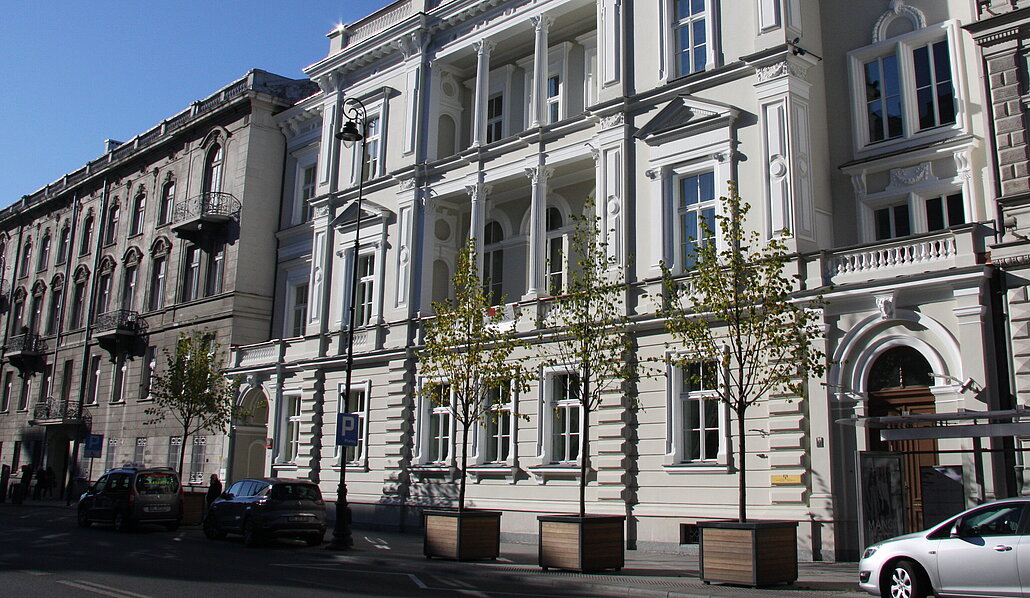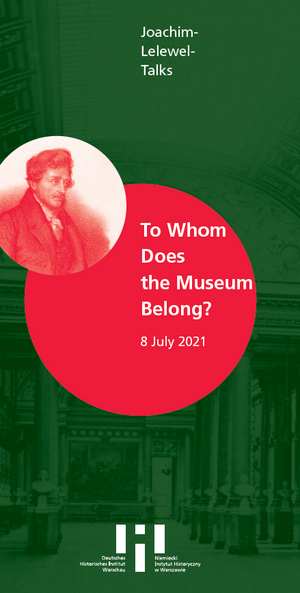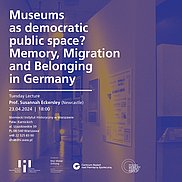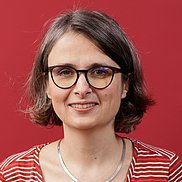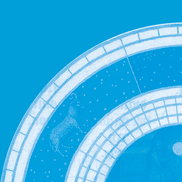In recent years, the International Council of Museums (ICOM) has been working intensively on a new definition of museum. As stated in the recommendations submitted by the Standing Committee for Museum
Definition to the Executive Board of the ICOM, in museums “the expectations for influence, participation
and direct involvement are growing amongst constituents. […] Across the world museums are experimenting with expanding their realms and methods to include and support new paradigms of public participation, in a positive, productive tension between being both an expert institution and a community platform.” These developments, the Committee postulates, have to find expression in a new definition of museums. Whatever the final wording of the new definition will be, the cited document is a manifestation of wider efforts to make museums more democratic, inclusive and participatory. But what does that mean in practice? Do museums come up to these expectations? What obstacles do they encounter when trying to reach these goals?
The question is manifold. On the one hand, it is the issue of the relations between museums and their
sponsors, including notably state and local authorities. In Poland this question became acute after the then newly elected national-conservative PiS government conducted a “hostile takeover” of a number of Polish museums, including most prominently the Museum of the Second World War in Gdańsk (2017). However, this was only the end-result of a long-lasting malaise of the Polish cultural policy, which in recent decades failed to establish a system, which would ensure public museums a greater academic autonomy and independence from current politics. However, the problem is much more widespread. In Germany the big struggle on how to ensure museums a democratic legitimacy and academic autonomy at the same time started already in the 1980s/90s as a reaction to new politics of remembrance under Helmut Kohl. However, the solutions elaborated back then are still subject to disputes and controversies. Problems with dependencies between museums and public and private donors also occur elsewhere. E.g. the newly re-opened Royal Museum of Central Africa (RMCA) in Tervuren was co-sponsored by Umicore, a Belgian mining company, that has operated in Congo since the early 20th century. Critics claim that this fact resulted in the at times unclear stance the new exhibition takes towards the role Belgians played in this region.
Another important issue is the relation of museums with other agents of memory, including foremost the source communities. Good examples of such community involvement are the intense but often strained relations between the African diasporas in Belgium and the Royal Museum of Central Africa in Tervuren, or between the Buchenwald Memorial Museum and the former prisoners of Nazi and Stalinist camps. How to empower memory groups, local communities and other agents while not compromising on the museum’s professional autonomy? Who is and who is not entitled to participate in the negotiation process and how to structure it? How to mediate between these groups with their often contradictory expectations towards the museum? What are the conflicts, which used to occur? What good practices were elaborated until now? These and other questions will be discussed with renowned experts and museum practitioners from Belgium, Germany, Poland, and the USA.
Panelists:
Günter Morsch, Freie Universität Berlin, Otto Suhr Institute of Political Science
Piotr Maciej Majewski, Institute of History, University of Warsaw
Anne Wetsi Mpoma, Wetsi Art Gallery, Brussels
Dwandalyn Reece, National Museum of African American History and Culture, Washington DC
Moderation:
Zofia Wóycicka, DHI Warschau
Welcome:
Miloš Řezník, DHI Warschau
Thursday, 8 July 2021
1–3 pm CEST
The organization of the discussion will be financed by the German Historical Institute Warsaw. The event would be at the same time part of a series of events held regularly by the GIH titled Lelewel-Talks.
The Joachim-Lelewel-Talks of the German Historical Institute Warsaw provide a forum in which contentious
issues surrounding Polish history are discussed in their European context. Each edition brings together
representatives of Polish, East and West European or international history respectively to a panel discussion, where the audience actively participates. The intention of these discussions is not only a confrontation with not infrequently opposed assumptions and views, but also an immersion of the various research milieus in an intensive exchange of ideas. This procedure enables the continued development of the discussed issue and provides a point of departure for the diverse methodological aspects.
The 20th Lelewel-Talk is part of the Fifth Annual Conference Convergences (July 5–9, 2021). The event is organized by the Memory Studies Association in cooperation with the German Historical institute, the University of Warsaw, the European Network Remembrance and Solidarity as well as the Polish Memory Studies Group. For registered participants, the online conference is accessible via the conference platform.
A livestream will be provided on:
YouTube — www.youtube.com/channel/UCVCaCQ35rB45iWgLb0zoUxA
Facebook — www.facebook.com/memorystudies
Flyer Lelewel Talks: Download Flyer
Conference Website: www.msaconferencewarsaw.dryfta.com
Coference program: Download PDF
Please note: The translation of the discussion is only available to registered conference participants. On Facebook and Youtube, the talk will be shown bilingually, in German and English.

